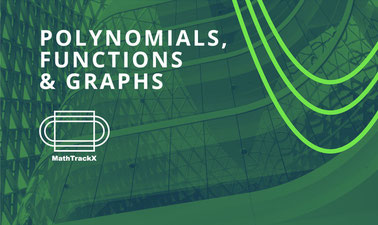
EPFLx: Cement Chemistry and Sustainable Cementitious Materials
by École polytechnique fédérale de Lausanne
The Science and Technology of Cement
An innovative and comprehensive course by EPFLx
Course Description
Welcome to "The Science and Technology of Cement," an innovative and comprehensive course that delves deep into the world of one of the most ubiquitous materials in our modern society - cement. This intermediate-level course, offered by EPFLx, is designed to unravel the mysteries behind the strength, durability, and versatility of concrete, a material we encounter daily but seldom understand fully.
Over six weeks, you'll embark on a fascinating journey through the chemistry and engineering of cement, exploring its production, hydration, and the cutting-edge techniques used to study and improve it. From the basics of cement chemistry to advanced analytical methods like X-ray diffraction and scanning electron microscopy, this course offers a blend of theoretical knowledge and practical skills that are invaluable in the fields of materials science, civil engineering, and sustainable construction.
What You'll Learn
- A deep understanding of cement hydration processes
- The science behind Supplementary Cementitious Materials and their role in modern concrete technology
- Practical skills in advanced analytical techniques such as X-Ray diffractometry, Scanning Electronic Microscopy, and Isothermal calorimetry
- The environmental and economic implications of cement production and use
- Cutting-edge research in sustainable cementitious materials
- How to interpret and analyze data from various cement testing methods
Prerequisites
While the course is designed to start with the basics of cement, a solid foundation in the following areas will be beneficial:
- A bachelor's degree in Materials Science or equivalent
- Knowledge of chemistry, physics, and crystallography
- Basic understanding of materials science principles
Course Content
- Introduction to cement chemistry and its role in modern construction
- The hydration process of cement and its impact on concrete properties
- Environmental and economic aspects of cement production and use
- Advanced analytical techniques: X-ray diffraction, scanning electron microscopy, and isothermal calorimetry
- Supplementary Cementitious Materials and their applications
- Kinetics of cement hydration reactions
- Best practices for sample preparation and analysis
- Interpretation of analytical data for cement characterization
- Cutting-edge research in sustainable cementitious materials
Who This Course Is For
- Materials science and engineering students looking to specialize in cement and concrete technology
- Civil engineers seeking to deepen their understanding of construction materials
- Researchers in the field of sustainable construction and materials
- Industry professionals in construction, cement manufacturing, or concrete production
- Anyone with a scientific background interested in the chemistry and physics behind everyday materials
Real-World Applications
- Improving concrete formulations for enhanced durability and sustainability
- Developing new, environmentally-friendly cementitious materials
- Troubleshooting issues in concrete construction projects
- Conducting quality control in cement and concrete production
- Contributing to research and development in the construction materials industry
- Advising on material selection for infrastructure projects
- Enhancing the longevity and performance of concrete structures
Syllabus
Setting up the context of sustainability in cementitious materials research
Introduction to cement chemistry and hydration mechanisms
Using Scanning Electron Microscopy with Energy Dispersive X-ray spectroscopy (SEM-EDX) for cement characterization
Best practices and tips from the Laboratory of Construction Materials (LMC)
Deep dive into cement hydration and reaction kinetics
Using isocalorimetry to follow the reaction: best practices and LMC tips
Basics of X-Ray Diffraction (XRD)
Sample preparation techniques for XRD analysis
Applying XRD to cementitious materials
Advanced analysis of XRD results






